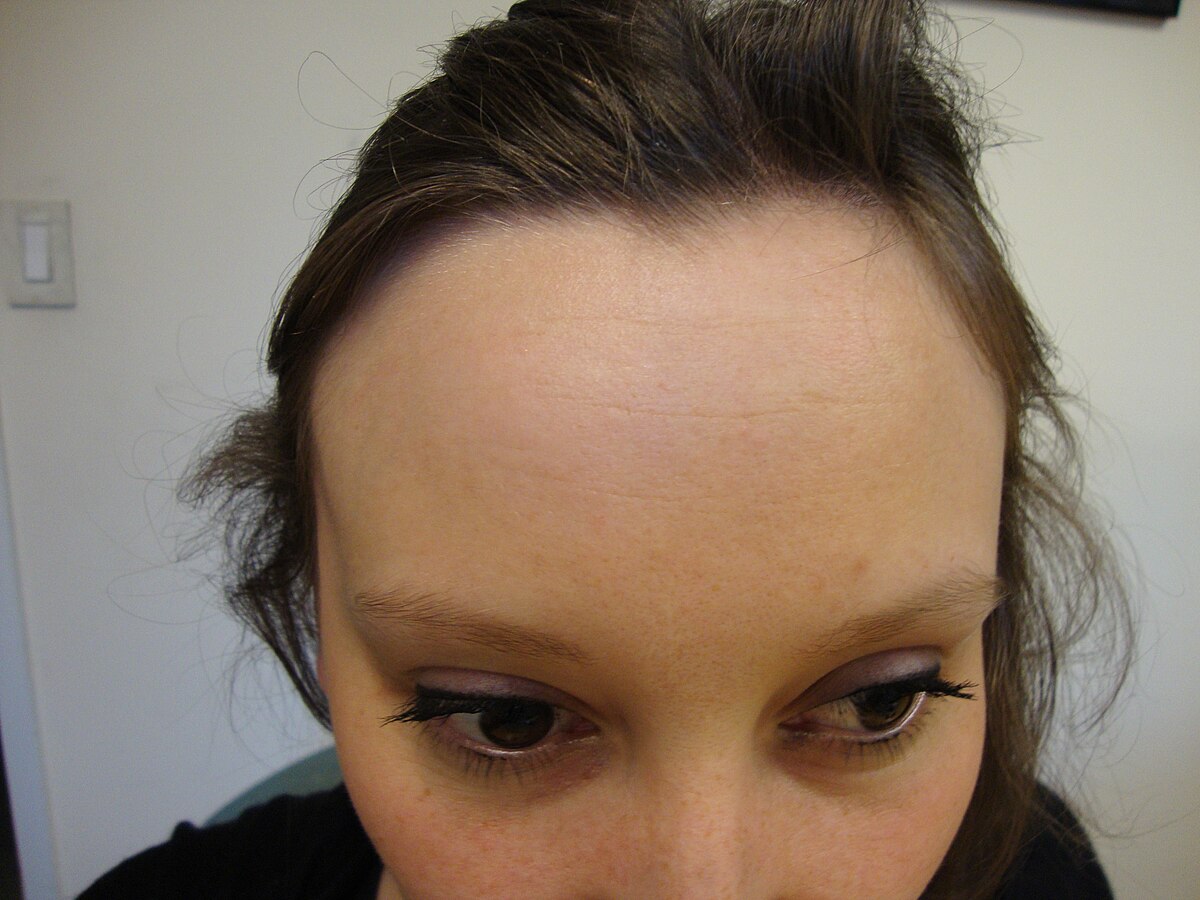People with a big forehead often attract attention, whether it be through societal perceptions or personal experiences. Understanding the significance behind this physical trait can lead to a more inclusive perspective on beauty and individuality. In this article, we will explore the various aspects of having a prominent forehead, including cultural views, psychological implications, and even celebrity examples. By the end, you will have a well-rounded understanding of what it means to have a big forehead and how society perceives it.
Foreheads come in all shapes and sizes, and for some, a larger forehead can be a defining feature. This article will delve into the science behind forehead size, its impact on self-esteem, and how individuals can embrace their unique traits. Additionally, we will examine famous personalities known for their larger foreheads and how they have navigated their public image.
As we journey through this topic, we will also touch on the role of media and trends in shaping our perceptions of beauty, highlighting the importance of self-acceptance and confidence. So, whether you have a big forehead yourself or know someone who does, this article aims to provide valuable insights and encouragement.
Table of Contents
- What is Considered a Big Forehead?
- Cultural Perceptions of Big Foreheads
- Psychological Impact of Having a Big Forehead
- Celebrity Examples of People with Big Foreheads
- Embracing Uniqueness: Confidence and Self-Love
- Common Misconceptions About Big Foreheads
- The Science Behind Forehead Size
- Conclusion
What is Considered a Big Forehead?
A big forehead is generally characterized by a height that is noticeably greater than the average. The average forehead height ranges from approximately 5 to 7 centimeters in adults, but this can vary widely based on various genetic factors. A forehead that exceeds this range is often deemed "big." Here are some points to consider:
- Forehead size can be influenced by genetics, age, and ethnicity.
- Social standards of beauty can vary significantly between cultures.
- Forehead size may impact facial symmetry, which is often linked to attractiveness.
Cultural Perceptions of Big Foreheads
Cultural perceptions play a significant role in how people view foreheads. In some cultures, a large forehead is celebrated and seen as a sign of wisdom or intelligence, while in others, it may be viewed negatively. Here’s how different cultures perceive big foreheads:
- In many African cultures, a big forehead is considered a symbol of beauty, representing a strong and intelligent individual.
- In Western culture, trends often shift, but traditionally, a smaller forehead has been favored in media representations of beauty.
- In some Asian cultures, a big forehead is associated with good luck and fortune.
Psychological Impact of Having a Big Forehead
The psychological impact of having a prominent forehead can vary greatly among individuals. Some may feel insecure about their appearance, while others embrace it as part of their identity. Here are some psychological factors to consider:
- Self-esteem: Individuals with big foreheads may struggle with self-image, especially if they do not conform to societal beauty standards.
- Body Positivity: Embracing one's unique traits can lead to a more positive self-image and acceptance.
- Social Interaction: The way others perceive a big forehead can influence an individual's confidence in social situations.
Celebrity Examples of People with Big Foreheads
Many celebrities proudly showcase their larger foreheads, often becoming icons of beauty and style. Here are a few notable examples:
| Name | Profession | Notable Features |
|---|---|---|
| Rihanna | Musician, Actress | Defined forehead, often accentuated with bold hairstyles |
| Tyra Banks | Model, TV Host | Prominent forehead that adds to her unique beauty |
| Will Smith | Actor, Producer | Known for his charm and large forehead |
| Sarah Jessica Parker | Actress | Recognized for her large forehead and distinctive style |
Embracing Uniqueness: Confidence and Self-Love
Embracing uniqueness is crucial for building confidence. Here are some strategies for individuals with a big forehead to boost their self-esteem:
- Focus on positive attributes: Concentrate on your strengths and what makes you unique.
- Experiment with hairstyles: Certain hairstyles can complement a larger forehead, such as bangs or layered cuts.
- Seek support: Surround yourself with supportive friends and family who appreciate you for who you are.
Common Misconceptions About Big Foreheads
There are several misconceptions surrounding people with big foreheads. Understanding these can help in changing societal perceptions:
- Misconception: A big forehead indicates low intelligence.
Reality: Intelligence is not determined by physical appearance. - Misconception: People with big foreheads are unattractive.
Reality: Attractiveness is subjective and varies from person to person. - Misconception: Big foreheads are a flaw.
Reality: Many find larger foreheads beautiful and distinctive.
The Science Behind Forehead Size
Research in the field of anthropology and genetics has shown that forehead size can be influenced by a variety of factors:
- Genetics: Family traits often play a role in determining forehead size.
- Evolution: Certain features, including forehead size, may have evolved based on environmental adaptations.
- Health Indicators: In some studies, forehead size has been linked to health and developmental factors during childhood.
Conclusion
In conclusion, people with a big forehead possess unique traits that can be embraced rather than hidden. By understanding the cultural perceptions, psychological impacts, and embracing self-love, individuals can navigate their experiences confidently. Remember, beauty comes in all shapes and sizes, and every feature contributes to our unique identities. We encourage you to share your thoughts on this article, leave a comment, or explore more content on our site.
Thank you for taking the time to read this comprehensive guide on people with a big forehead. We hope it has inspired you to embrace your individuality and appreciate the diverse beauty around us.




